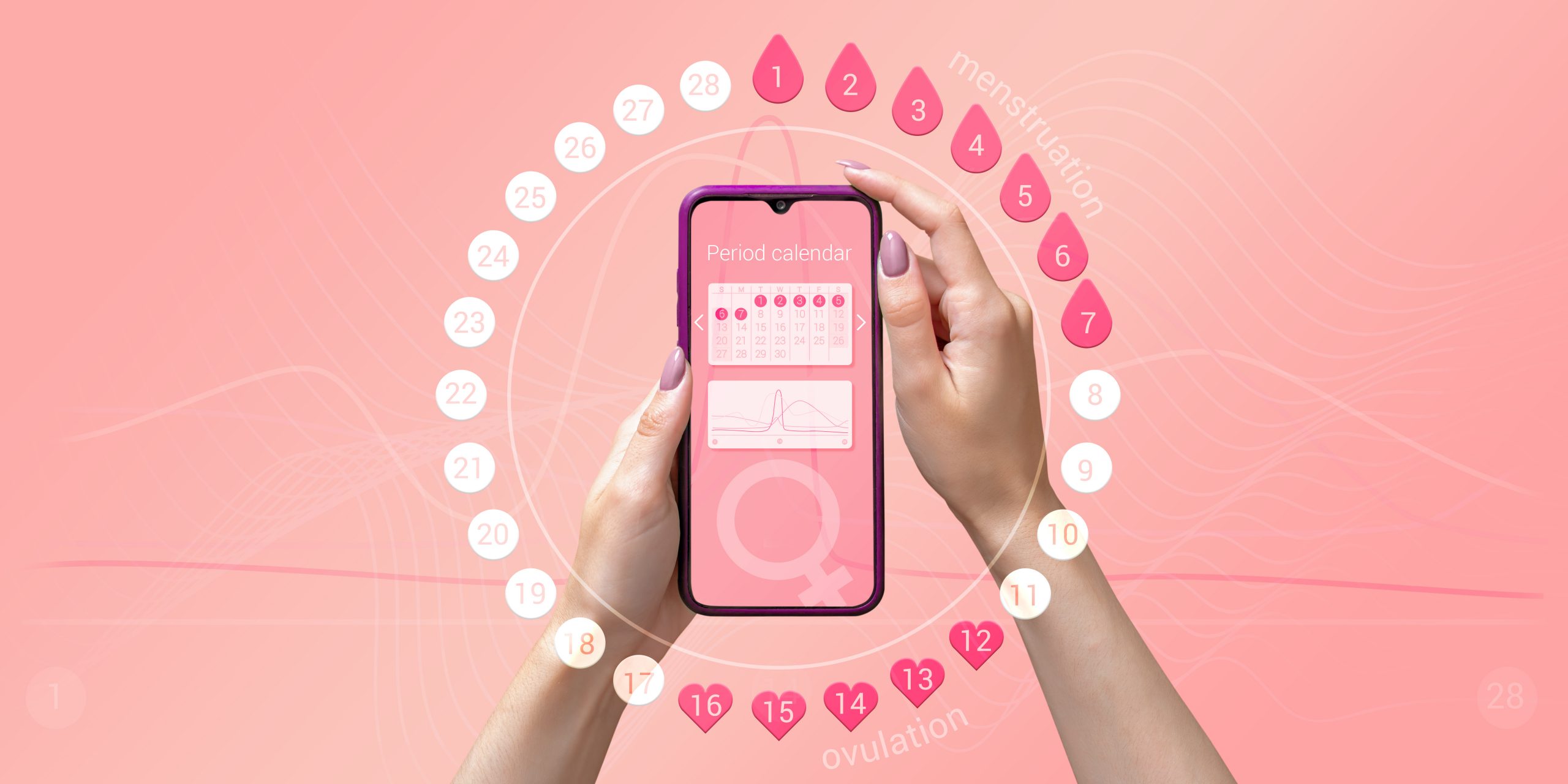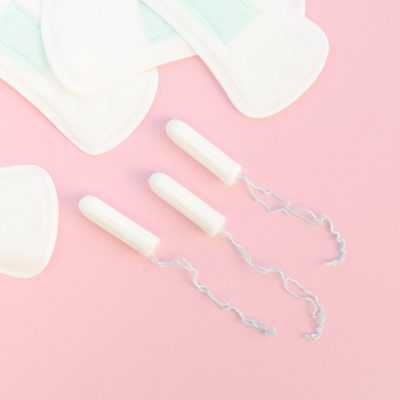Special
The best period tracking apps of 2023
We’ve rounded up the best period trackers for 2023 to help you find the right one for you

In the age of technological advancements, period tracking apps have emerged as invaluable tools for women to monitor and manage their menstrual cycles.
With a range of features that allow women to log in their periods, track symptoms, identify patterns and gain a better understanding of their bodies, these apps have become increasingly popular and have revolutionised the way women approach their reproductive health.
But that’s not all they are good for. Research shows apps can also provide timely information about specific contraceptive methods, ovulation and fertility windows, making them great tools for family planning.
Trackers can also foster open conversations about menstruation and provide platforms for sharing experiences and insights within supportive communities, destigmatising discussions around menstruation and female health more generally.
However, most period tracking apps are not appropriate to prevent pregnancy, so do use them with caution, if you had that in mind.
But if you are keen to learn more about cycle tracking, map your periods, monitor your ovulation, or keep tabs on your reproductive health, try some of our top picks below.

Nexus isn’t just a cycle tracker, it’s a holistic women’s health coach which includes a cycle tracker but also nutrition, exercise and more to give you a more comprehensive experience when engaging with Nova, your AI coach
Nexus bridges this gap with a female-specific onboarding process offering over 50,000 unique combinations of personalised wellness insights.
With Nova, users also have access to an AI coach that truly knows them, offering adaptive, actionable guidance grounded in science and tailored to each woman’s unique physiology and life stage.
The vision behind Nexus is to give women control over their own health data, using it to improve conversations with healthcare providers, reduce medical gaslighting and accelerate diagnosis times through advocacy and education.
At the heart of Nexus lies a proprietary large language model (LLM) and peer-reviewed health database, built specifically for women. This architecture blends medical research, clinical guidelines and user data to generate precise recommendations, far surpassing the capabilities of off-the-shelf AI systems.
- Built by medical professionals and scientists. Our team of experts have built, reviewed and tested this product.
- AI-powered health coach Nova, built from scratch to handle the bias and hallucinations for women’s health with AI
- Personalized experience: Nexus adjusts predictions and recommendations to each user’s unique cycle and health characteristics.
- Nexus is free with no upsales or features behind the pay wall.
- 5* reviews in the App Store.
- Your data is private. We don’t share your personal data with the AI model or any 3rd parties.
Nexus is only available on the UK Apple app store currently. You can download the app here or join the international / Android waitlist here. Coming early 2026.

Flo’s mission is to build a better future for female health by helping to harness the power of body signals. Flo’s team of 100+ doctors and health experts create evidence-based medical articles, tips and recommendations designed to improve your health.
The app uses AI so you can easily know when you ovulate, track your period and view future cycles. In Flo, you can track more than 70+ symptoms and events for more personalised tips, relevant content and even more precise cycle and ovulation predictions.
Flo also offers Pregnancy Mode which provides you with the information you need during pregnancy. You will be able to receive insight each day into how the baby is developing, what happens in your body as a mum-to-be, which supplements and foods you should include in your diet and which you should avoid, how to recognise the approaching labour, what you could expect from the postpartum period and much more.
Within the app you can also discuss sensitive topics, questions and get support from other Flo community members anonymously.
Flo ensures that your data is safe with end-to-end encryption, secure access (Face or touch ID), anonymous mode (no name or email) and control over what you share. Your data won’t be shared with third parties.

Clue is a Berlin-based reproductive health company that supports, educates and empowers women and people with cycles with personalized health insights to support them from their first period to their last.
Created with science and technology at its core, the company’s mission is to be a trusted companion, empowering people around the world on their journeys to self-discovery and reproductive health.
Founded in 2012, Clue was one of the first femtech companies, serves millions of people around the world in 190 countries, and regularly partners with universities, researchers and clinicians on research to help address health gaps.
Clue’s app is free to download and includes its signature Period Tracking feature, with additional personalised modes like Clue Conceive and others available in the premium subscription offering, Clue Plus.
For more, visit helloclue.com.

Premom offers personalised, science-backed insights to help you better understand your body—whether you’re just tracking your cycle or actively trying to conceive.
What makes Premom different? It’s designed by fertility experts and powered by smart technology.
When you log ovulation tests, basal body temperature (BBT), cervical mucus, and other symptoms, Premom’s AI algorithm learns from your unique patterns—even if your cycles are irregular.
You’ll get a clear, easy-to-read period and ovulation calendar, automatic hormone and BBT charting, and real-time predictions so you can confidently spot your fertile window.
Created by the makers of Easy@Home ovulation tests, it’s helped over 1 million users get pregnant while using Premom.
Need extra support?
- FastPass™ to Pregnancy gives you a step-by-step plan to conceive faster, with smarter ovulation predictions, weekly expert video tips, and personalized guidance.
- Fertility AI Pro helps you make sense of your hormone results and gives you instant, expert-backed answers so you’re never left guessing.
- Pregnancy Mode kicks in once you’re expecting—with weekly updates on your baby’s development, body changes, and tips to feel your best each trimester.
- Predad™ keeps your partner involved with updates and ideas to stay connected and supportive through it all.
Want to go deeper? Premom Premium unlocks advanced fertility reports, expert-led webinars, and tools like a PCOS self-assessment so you feel informed and empowered every step of the way.
The Premom app is free to download with the option to upgrade for further support.
Learn more at www.premom.com
*Over 1 million users logged pregnancy or positive pregnancy test results while using the Premom App
WomanLog

WomanLog is a reliable and easy-to-use period tracker app tailor-made for women of all ages in every moment of their health.
There are dozens of complex processes that take over a woman’s body every day. Why not be aware of them and be prepared for everything?
WomanLog, a free multi-use app, is much more than a digital calendar that tracks menstruation cycle, sex life and contraception used. It has an encyclopedia of more than 200 symptoms that may occur in a woman’s body during her cycle.
The Latvia-based start-up is among the leaders in the global market for more than 10 years. Translated into 30 languages, it has 1.5 million active monthly users worldwide and more than 20 million installs.
WomanLog app has three modes: period tracker, pregnancy and menopause mode. WomanLogBaby app helps to track every step of baby’s daily activities while “Intelligent Assistant” with cutting-edge Artificial Intelligence and Machine Learning technology offers even more detailed analysis.
Users are constantly introduced to articles on women’s health, psychology, daily life and activities.
Data safety in the key point of every app, and WomanLog is the leader with the highest security level that meets all the GDPR standards.
Moreover, the web version of WomanLog, available without even signing-in, features online calculators that count the days left until your next period or fertility windows within seconds.
For more, visit womanlog.com.
Wild.AI

Wild.AI has done extensive research on what a woman is, studying what the female body needs and when.
The company translates this research into the app, helping woman track, train, eat, and recover, with their physiology – whether they menstruate, use birth control, or are in perimenopause or menopause.
While all products, apps, and wearables seem to serve men well, Wild.AI interprets data through a female lens. The readiness score is calculated by the combination of wearable data and daily subjective check-ins, including symptoms, stress levels and periods.
As an example, if the body temperature goes up, as a man, it could mean you are sick. As a woman, it may mean you ovulate, you’re pregnant, or have perimenopausal symptoms.
Wild.AI provides daily adaptive and personalised recommendations that take the ever-changing daily context into account and adapts with you, effectively acting as human data-scientist, a coach, and a nutritionist.
The app is launching the coach interface alongside the coach academy, to upskill coaches and let them train women with their physiology seamlessly.
Led by Helene Guillaume and Dr Stacy Sims, this is possible thanks to the research conducted internally and in partnership with universities, continuously advancing the knowledge on female health, and covering more life stages over time, 50+ female-specific symptoms, 149 different birth controls – and counting.
In a one-stop-shop, Wild.AI is the performance platform for women, establishing itself as the gold standard in the industry.
For more, visit wild.ai.
Spot On

Spot On is Planned Parenthood’s free, medically accurate, period and birth control tracking app. The app — available in both English and Spanish — has over six birth control methods you can choose to track (the pill, patch, ring, shot, IUD, and implant) and over 180 brands represented that you can sync the app to.
It also offers advice tailored to you based on your unique cycle and schedule, birth control, and reproductive goals.
Since its launch in 2016, Spot On has had over 2.6 million downloads, and close to 73,000 monthly engaged users who log on and track their period, mood, activity and/or birth control.
Spot On offers an inclusive user experience, never making assumptions about your gender, sexual orientation, or reproductive goals. This app talks about your period and birth control the way real people do (so, no pink flowers or butterflies).
In a post-Roe world, Spot On is committed to data privacy, allowing users to choose to create an account or use the app anonymously.
Spot On’s usership over-indexes BiPOC representation in comparison to the US population: Spot On has 58 per cent BiPOC users as compared to 42 per cent of the US population.
The majority of Spot On users are between ages 18-24 (42 per cent), closely followed by ages 25-29 (24 per cent). Most of its engaged users are patients at Planned Parenthood health centres.
Spot On does not display ads or prompt users to upgrade. The app’s north star is to increase user engagement and satisfaction and to empower BiPOC community members to make informed decisions about their sexual and reproductive, mental, and physical health goals.
For more, visit plannedparenthood.org.
To receive the Femtech World newsletter, sign up here.
Special
Milken launches women’s health network platform
News
Innovate UK opens Women in Innovation Awards

Innovate UK has opened the Women in Innovation Awards for 2025 to 2026, with grants of up to £75,000 for as many as 60 winners.
HealthTech winners in 2024 included a tampon that prevents bacterial infections, an AI audio device for visually impaired people, and an app for gynaecological conditions.
The awards target female founders of late-stage start-ups with a minimum viable product, early user traction or revenue, growing teams and plans to raise significant capital within 12 to 24 months.
Liz Kendall, science secretary, said: “The Women in Innovation Awards are unlocking the UK’s untapped potential within our community of women innovators; if men and women started and scaled businesses at the same rate this could be worth as much as £250 billion for the UK economy.
“This record £4.5 million investment will empower ambitious women founders to scale their businesses, drive economic growth, and inspire the next generation of innovators.”
Applicants must operate in advanced manufacturing, digital and technologies, or life sciences, three of the high growth sectors identified in the UK’s Industrial Strategy. Winners receive up to £75,000 plus training, networking and role-modelling opportunities, with tailored support also offered to highly commended applicants.
The competition opened on 26 November 2025 and closes on 4 February 2026.
Since 2016, Innovate UK has invested more than £11m in 200 women innovators through these awards, with up to 60 more to be funded this year.
Last year’s programme drew criticism after Innovate UK initially said it would fund 50 women, then announced only 25 awards at £75,000 each. Following a campaign led by Emma Jarvis, founder of Dearbump, and the ‘Let’s Fund More Women’ group of more than 400 supporters, Innovate UK reversed the decision and confirmed all 50 awards and £4m, saying it was “a mistake and we prioritised wrongly”.
News
CardMedic and LanguageLine announce app integration

CardMedic, the digital platform transforming clinician and patient communication, has announced a major integration with LanguageLine Solutions, the global leader in on-demand interpretation.
The partnership brings one-click access to live, professional video and audio interpreters in more than 240 languages directly within the CardMedic app.
The integration will help clinicians deliver safe, inclusive, and human-centered care at the point of need.
Dr Rachael Grimaldi, co-founder and chief medical officer of CardMedic said: “Our mission is to remove barriers that stand in the way of safe, compassionate care.
“This integration with LanguageLine gives clinicians fast and reliable access to professional interpreters alongside all of CardMedic’s inclusive tools, making communication more effective and equitable than ever before.”
CardMedic’s digital app breaks down language, cognitive, and sensory barriers, providing clinicians with instant access to multilingual and multimodal tools that support patients across a wide range of communication requirements.
With LanguageLine’s trusted interpreter network now embedded into the platform, CardMedic becomes the only solution of its kind to combine prewritten clinical content, AI powered accessibility tools, and live interpretation in one seamless workflow.
CardMedic was quickly developed during the COVID 19 pandemic in response to urgent communication breakdowns caused by masks and PPE.
Since then, it has grown into a comprehensive healthcare language support platform, used across NHS trusts in the UK and expanding internationally into the United States.
Designed in collaboration with clinicians and refined through real patient feedback, the app is simple to use, fast to deploy, and built to fit within clinical workflows across acute, emergency, and routine care.
With the new integration, healthcare staff can connect to a live LanguageLine interpreter within seconds, directly inside the CardMedic app.
Whether a conversation starts with a multilingual script or with an AI powered sign language avatar, clinicians can now escalate immediately to human interpretation with no disruption to care.
The experience includes intelligent language selection, optional department code support, and device flexibility.
Early feedback from NHS and US health systems points to faster decision making, improved patient understanding, and reduced delays.
CardMedic’s AI is guided by a clinician in the loop model that ensures all content is accurate, culturally sensitive, and accessible at a 6 to 8-year reading level. The platform complies with GDPR, is tested to minimise bias, and is designed to complement human interpreters rather than replace them.
The result is a flexible, ethical, and scalable communication solution that strengthens understanding, safety, and trust across diverse patient populations.
CardMedic has been cited in NHS England’s 2025 Patient Safety Healthcare Inequalities Reduction Framework and supported by key innovation programs including the NHS Innovation Accelerator, Clinical Entrepreneur Programme, MassChallenge, and Texas Medical Center Innovation.
As healthcare systems continue to focus on reducing disparities, CardMedic’s all in one platform is uniquely positioned to support scalable, equitable care across urgent and planned settings.
Simon Yoxon-Grant, president and CEO of LanguageLine Solutions said: “When a clinician can connect with a patient in their own language, it affirms the patient’s right to be heard.
“We’re proud to work with CardMedic to deliver that kind of access at the point of care.”
Looking ahead, CardMedic is developing personalised interpretation pathways, digital consent support, and communication tools for underserved communities.
-

 Features4 weeks ago
Features4 weeks agoCannabis compounds kill ovarian cancer without harming healthy cells, research finds
-

 Insight4 weeks ago
Insight4 weeks agoMeta removes dozens of abortion advice and queer advocacy accounts
-

 Insight4 days ago
Insight4 days ago2025: The year IVF innovation went from lab to life
-

 News3 weeks ago
News3 weeks agoCan biotech help close the fertility gap? Inside the race to improve egg quality
-

 Features4 weeks ago
Features4 weeks agoUniversity of Leeds IVF spinout raises £3.5m
-

 Insight3 weeks ago
Insight3 weeks agoAI-driven digital tool delivers sustained blood pressure reductions, study finds
-

 Insight4 weeks ago
Insight4 weeks agoMenopausal hormone therapy may not increase breast cancer risk in women with BRCA mutations
-

 News3 weeks ago
News3 weeks agoAHA invests in AI aimed at cardiology’s gender bias problem

























Pingback: London-based graduate develops device to help visually impaired women manage their periods - FemTech World